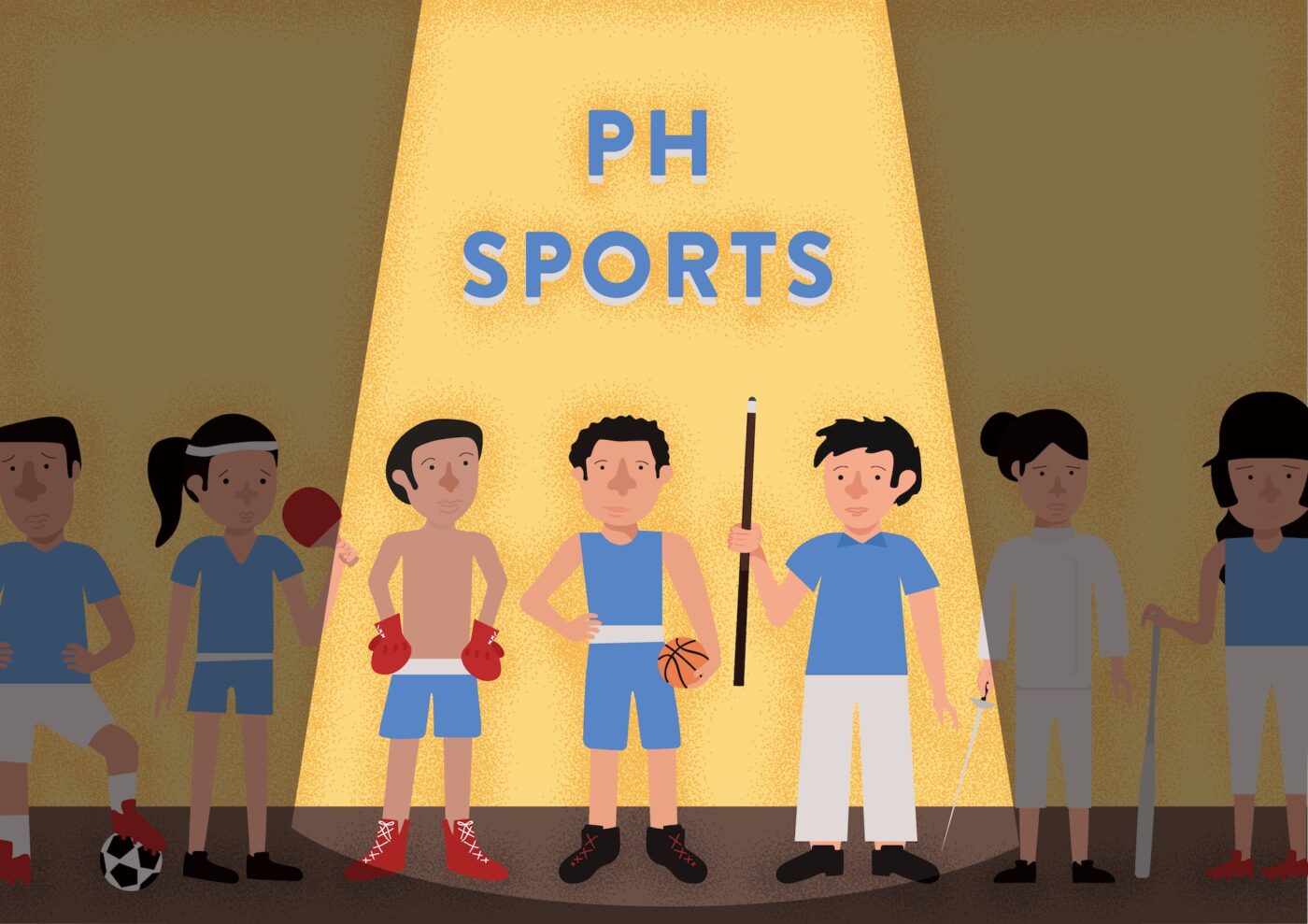When Filipinos watch sports, they always have a team or someone to root for. When they find the side that they want to rally behind, they cheer them on with an infectious passion that lasts throughout the entire competition.
Filipinos flood stadiums to watch the Philippine Basketball Association (PBA) finals, but can’t seem to name a player from the Philippine Volcanoes, our country’s Rugby team. There is an affinity for watching Pacquiao slugging it out with an opponent, but there is also an unawareness of the existence of World Wrestling Entertainment, Filipino-style.
This attitude regarding sports leaves Filipinos budgeting their support and unwilling to splurge for anything other than the familiar.
Limited chances
The “holy trinity” of sports in the Philippines, namely basketball, boxing, and billiards, dominate televisions across the country. Especially for basketball, broadcasters not only give exposure to national-level competitions, but to collegiate and high school leagues as well.
Despite the Philippines having teams in all manners of competitive sports, Filipinos are almost completely unaware of their achievements. The Philippine Baseball team, for example, is ranked number one in Southeast Asia, and is consistently placed in the top 50 teams in the world.
“I just do not think that the baseball scene in the Philippines is diverse enough yet to give athletes like me an opportunity to widen my horizons,” says Tres Sarmiento, a legal management freshman and Ateneo Men’s Baseball team member. “I think that the over-exposure of basketball, boxing, and billiards in both collegiate and international level competitions affects the opportunities for other sports in the Philippines to grow.”
Filipinos only ever rally behind the teams they are familiar with. In boxing, Filipinos only invest themselves in Manny Pacquiao fights and rarely ever give the other home-grown talents a chance.
Often times, new fighters such as Nonito Donaire are quickly compared to Pacquiao. But when these new fighters do not live up to Pacquiao’s caliber, Filipinos are quick to lose all interest in someone who is fresh and is still in the process of gaining experience. This attitude of fleeting interest is a struggle most sports in the Philippines battle with.
Center spotlight
A sport gains support through the attention and coverage it receives in media, especially in the digital age. In the Philippines, broadcasting companies like ABS-CBN and Solar Sports have rights to broadcast the country’s dearest sport: Basketball.
ABS-CBN is the broadcast partner of the University Athletic Association of the Philippines (UAAP), and the National Collegiate Athletic Association of the Philippines (NCAA), while Solar Sports has the rights to the National Basketball Association (NBA). This allows them to broadcast games on their channels. Solar’s free-to-air rights are to ABS-CBN; this permits the latter to broadcast the basketball fanatic’s favorites: The NBA’s All-Star Weekend, Playoffs, Conference Finals, and the Finals.
“The media only ever covers those sports, so [they’re] the only [kinds of sports] people [will] ever know,” said Raegan Gavino, an interdisciplinary studies junior and Ateneo Varsity Swimming team member. “Since my first year [in the Ateneo], specific people, [not exclusive to those in] the Ateneo, were trying to get swimming covered for the UAAP—and it’s been difficult.”
Until now, coverage for swimming remains scarce. International broadcasting stations aside, only Solar Sports broadcasts aquatic competitions. However, these are not available on free TV. Such competitions are limited to events held by the International Swimming Federation (FINA), the official regulating body for aquatic sports. Other than FINA events, no other aquatic sports—local or international—are broadcasted regularly.
Sports entertainment
It would be too easy to put the blame on broadcast stations for narrowing viewing choices, but to do so would ignore the fact that entertainment companies largely cater to the demands of the people in the first place.
In a rather bold attempt for variety, free TV station ABS-CBN Sports+Action has covered games and matches of the Philippine National Football Team (Azkals), and events such as the UAAP Football tournament, the Super Bowl (the National Football League’s annual championship game), and the Master’s Tournament (one of the four major championships in professional golf). Still, support for these sports either remain dormant or at niche level.
The focus, then, needs to be shifted on the Filipino viewer itself. The overall sentiment of Filipinos towards sports has placed entertainment value over the discipline itself. According to Caroline Lising, who used to work for local sports media company Vintage Enterprises, Philippine basketball’s close ties to show business is historical.
“[During the early 1990s,] we would produce short features for pre-game or halftime shows,” Lising explains. “And it was all very entertainment orientated: What’s this player doing outside the PBA? What were his hobbies? What’s his family like? It was pretty much showbiz.”
Lising cites that this brand of sensationalism in basketball, where the athlete is glorified rather than the sport itself, has affected the way Filipinos viewed sports in general. The media broadcasted the grand lifestyles that basketball players had, which they attained through their newfound popularity and multi-million peso endorsements. Constant exposure solely to the success of basketball players framed the mindset of basketball being the sole sport in existence to the Filipino.
“How many athletes are sacrificed at the altar of basketball?” Lising gripes.
Success paradox
Faced with a narrow spotlight that for decades has mainly been shining on three lone sports, what Filipinos need is to be enraptured by the beauty of new sports. But this is a challenge; to the sports on the fringes of the Filipino awareness, that is more than unfair.
“Filipinos don’t care about [other sports] unless someone wins something,” laments Gavino. “But because [Filipinos] don’t care about them, how can you expect [athletes] to win?”
Lising, who saw the likes of Alvin Patrimonio and Benjie Paras—both PBA stars in the ‘90s who rose to fame beyond basketball aided by their good looks, agrees that the root of the problem is the shallow attitude Filipinos have towards sports.
“We’re desperate for heroes,” she says.
A hierarchy has formed in local sports that has been cemented by time and popular culture. Lesser-known sports have been relegated to the lower ranks of our collective awareness and have been made into underdogs of the country’s athletic culture. Yet, in the context of sports, this position is not necessarily bleak. After all, sports is and has always been the culture that extolls the underdog rising the ranks.
“Just because our sport doesn’t garner enough or any attention from others doesn’t make it any less of a sport,” Gavino says. “We shouldn’t do something for the sake of popularity. We’re in our sport [because] we love what we do, and we’re passionate about it. Having an audience, or lack thereof, shouldn’t change that.”







